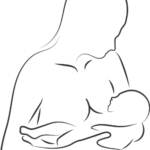Image credit to Medium.com
Here’s When Babies Can Eat Eggs As you start to feed your baby first foods, it can be tough to know what’s safe. You may have heard that kids can be allergic to eggs and that food allergies have been rising in the United States, according to the Centers for Disease Control. So when should you give your baby eggs? We spoke to the experts so you have the facts.
When Is It Safe for Babies to Eat Eggs?
The American Academy of Pediatrics recommends that babies start consuming solid food when they reach certain growth milestones. The babies should be able to hold their head up straight from themselves, doubled their birth weight, open their mouth on seeing food on a spoon, and be able to retain the food in their mouth and swallow. This group of milestones will usually occur anywhere from 4 to 6 months. Another study, funded by the AAP, indicates that introducing eggs as a first food may have benefits against the development of egg allergies.
Cesar Sauza, RD, registered dietitian nutritionist at National Coalition on Healthcare (NCHC), who specializes in prenatal and pediatric clients, agrees with this recommendation from AAP. “At 6 months, parents can safely start giving their babies eggs in very minimal amounts similar to other solid foods,” Sauza tells Parenting.
Alsio Read : Your 2-Week-Old Baby’s Milestones and Development
What Are Some Nutritional Benefits of Eggs?
The United States Department of Agriculture recently updated its nutrition guidelines, citing that egg consumption contributes toward a healthful diet. One recent study out of the NIH suggests that eggs may even be used to compensate for pediatric malnutrition.
According to Bidisha Sarkar, MD, a pediatrician with ClinicSpots, some of the essential vitamins and minerals found in eggs include vitamin A, B12, riboflavin, folate, and iron. It is also enriched with choline, which is essential for brain development, and DHA for the development of nerves. It contains healthy amounts of fat, omega-3 fatty acids, and important amino acids that help in the building of muscles.
What Should Parents Know About Egg Allergies?
Egg allergies are one of the most common food allergies, according to the AAP. They occur in up to 2% of children between the ages of 1 and 2.6
According to the American Academy of Allergy, Asthma, and Immunology, symptoms of a food allergy exhibit with the following:7
Hives or red, itchy skin
Stuffy or itchy nose, sneezing or itchy, teary eyes
Vomiting, stomach cramps, or diarrhea
Angioedema or swelling
In rare cases, anaphylaxis (swelling of the throat and tongue, difficulty breathing) may show up.
“If you suspect that your child may have an egg allergy, it is always advisable to see a pediatrician for professional advice,” Dr. Sarkar says.
Tips for Preparing Eggs for Babies and Kids
You’ve weighed the risks and benefits and plan to give your child eggs as one of their first foods—but how is best and safest to prepare them?
According to Dr. Sarkar, cooking eggs until both the whites and yolks are firm reduces the risk of foodborne illness.
Sauza agrees, adding, “Scrambled eggs are indeed the safest preparation for introducing eggs to your baby, although well-boiled eggs are possible if mashed with a fork.
It’s better to set the yolk, even though you may be tempted to give your young child sunny-side-up eggs. “For toddlers, adding some grated cheese or a little sprinkle of herbs can make it more palatable. You can also start introducing other types of eggs, such as omelets,” Dr. Sarkar adds.
As always, if you have more questions about your baby’s diet or suspect an allergy, don’t hesitate to consult with a pediatrician or healthcare provider about what is best for your child.










